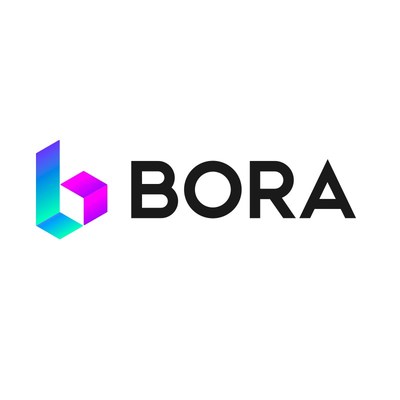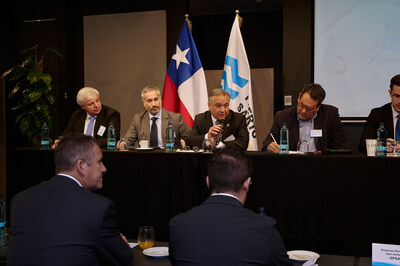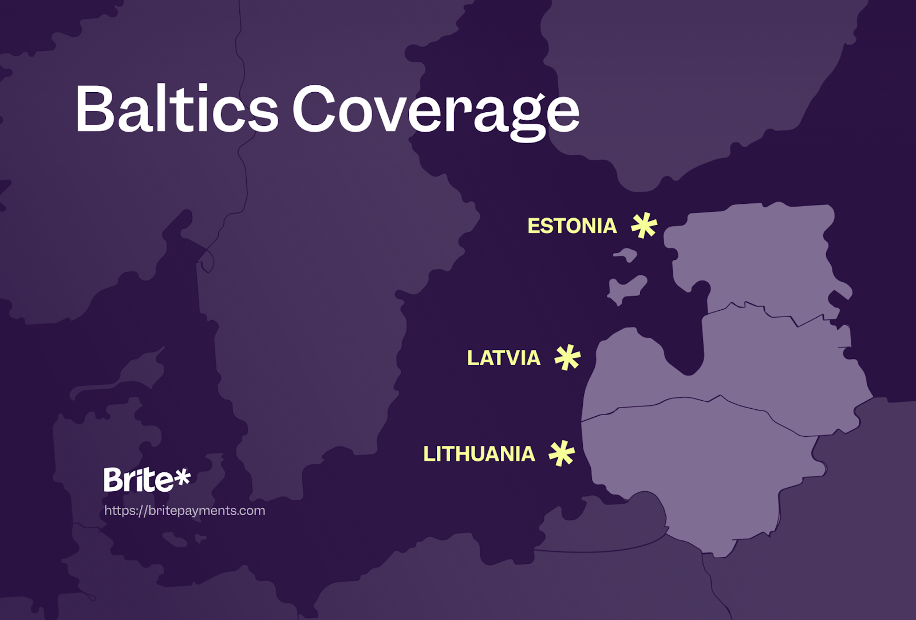Latest News
Bank of Lithuania’s Response to the Covid-19 Crisis: Responsible Action or Over-Regulation?

The Covid- 19 Pandemic has created many novel situations that are unlikely to disappear in the near future. Like in the majority of novel post- apocalyptic scenarios, the uncertainty of the a new world order, especially in the financial sector, is always looming upon not only the governmental sector, but also on the private sector, which leads to many legal lacunas.
Within the EU financial sector, it is still uncertain whether the crisis has entered into its second act, or if it is still at the overture level.
The Bank of Lithuania, for example, has demonstrated great resilience with the initial response to the Crisis, that was remarkable in comparison to the initial response of ESMA. The Bank has issued six points of reference to the financial institutions which are regulated under the Bank which are crucial for each Electronic Money Institution’s (hereinafter- EMI) reporting duties and financial duties.
For instance, part of these requirements are in direct correlation to the Market Abuse Regulation, 5 AMLD, PSD2, and MiFID II. When discussing the Market Abuse Regulation, the Bank has issued a notice that processes and business decisions issued within the quarantine time are considered inside information, and should be disclosed under the appropriate framework.
Bank of Lithuania is also aware that regulated entities, especially EMIs and Payment Institutions (hereinafter-PI) which have not been working from their usual headquarters, but on a remote basis, still have to continue their financial and regulatory report as usual. Documents should be sent on a password controlled basis, and physical documentation should not contain confidential or sensitive information.
In regards to trading activity and trading in a regulated environment, the Bank has announced its intentions for allocating means for legal enforcement for proper functioning of the market in Lithuania. By this, the Bank has decided to examine requests for suspended trading only after receiving well- reasoned submissions, which are objective, reasoned and legally justified.
This is not the first time that the objective, reasoned and legally justified criteria has been raised in a European context. The criteria is remarkably similar to the Subsidiarity and Proportionality principle of EU jurisprudence, which has been discussed countlessly in the Treaty of Maastricht, the Single European Act (SEA), and in T29/92, which established that the subsidiarity principle does not constitute sufficient grounds to tackle the legality of an EU legal act, especially in trade aspects between Member States and Association Agreement Countries.
In the financial services realm, this is one of the few times that this has occurred. Implementing the Subsidiarity and Proportionality Criteria in the Lithuanian context, has surpassed the EU Agency level (ESMA) and has been directly implemented by the Lithuanian Regulator.
It may seem to some that this leap is the first sign of over-regulation in Member States, which tend to over-regulate in times of crisis, yet this measure can also be deemed as responsible action. The fact that the Bank of Lithuania has managed to implement the measure in a short time frame, with minor and almost non-existent instructions from ESMA, proves once again that in cases of financial services, mutual and not exclusive competence is the golden route for financial institutions.
EMIs and crypto exchanges that have been licensed in Estonia in comparison, which have lately been scrutinized by regulatory enhanced enforcement, have not received any formal notification in regards to the Covid-19 crisis, and have not received an extension for financial and regulatory reporting, bearing in mind the July 1st deadline that is looming on the entire crypto industry in Estonia.
EMIs in Lithuania on the other hand, have received specific instructions on their financial and regulatory reporting, and the widely anticipated API open banking system will be presented during the Payment Council later this year.
Be that as it may, EMIs that are licensed in Lithuania need to bear in mind that additional enhanced procedures are anticipated from the Bank, and they need to prepare themselves for the regulatory whirlwind that will hit the compliance and operational desks within the foreseeable future.
About the author: Ella Rosenberg
 EU Law Regulatory Consultant at Porat Group and CEO of the Israel-EU Chamber of Commerce and Industry. She primarily deals with high risk industries in Israel and Europe. Ella holds an LLB in EU Law from the European Law School, Maastricht University and an LLM in Commercial and Company Law from Erasmus School of Law, Erasmus University Rotterdam. Ella consults on AML in the crypto currency industry, Blockchain, AI, drone regulation, EU firearms regulatory framework, Art industry, financial arbitration and tokenization of maritime logistics. She also focuses on Foreign Trade Agreements of the EU and Israel, TRIPS and GATT agreements, WTO Law and EU Legal Policy. Ella serves as a member of Europe Forum in Israel, and actively consults the public and governmental sector in Israel on the EU Regulatory Framework.
EU Law Regulatory Consultant at Porat Group and CEO of the Israel-EU Chamber of Commerce and Industry. She primarily deals with high risk industries in Israel and Europe. Ella holds an LLB in EU Law from the European Law School, Maastricht University and an LLM in Commercial and Company Law from Erasmus School of Law, Erasmus University Rotterdam. Ella consults on AML in the crypto currency industry, Blockchain, AI, drone regulation, EU firearms regulatory framework, Art industry, financial arbitration and tokenization of maritime logistics. She also focuses on Foreign Trade Agreements of the EU and Israel, TRIPS and GATT agreements, WTO Law and EU Legal Policy. Ella serves as a member of Europe Forum in Israel, and actively consults the public and governmental sector in Israel on the EU Regulatory Framework.
Latest News
Talino, Chemonics invest in startup Higala, the Philippines’ pioneering inclusive instant payment system
LOS ANGELES and MANILA, Philippines, April 29, 2024 /PRNewswire/ — Talino Venture Studios, an award-winning global venture studio for sustainable innovation, and Chemonics International, a leading sustainable development firm, have launched and seed-funded Higala, the pioneer startup Inclusive Instant Payment System (IIPS) in the Philippines.
As an IIPS, Higala will serve as a financial superhighway that will connect thrift banks, rural banks, and microfinance institutions that are currently excluded from payment networks because of high switching and on-ramp costs.
Despite the presence of 400 rural banks in the Philippines, only a mere 18 are part of InstaPay. This highlights a significant challenge: the lack of interoperability among these banks. As a consequence, the full potential of financial inclusion remains largely untapped, depriving many Filipinos of the benefits that modern banking technologies can offer.
“Higala will help modernize our country’s digital financial infrastructures and enable the participation of financial institutions through our network. Our goal is to make banking more inclusive, especially to the underserved segments of the population that have limited access to traditional banking services,” Higala President and CEO Vice Catudio said.
Higala promotes inclusion by lowering the cost of real-time payments, which helps financial institutions to reasonably price their instant payments. It also aims to provide inclusive financial solutions to the underbanked as well as rapidly enable merchants to accept digital payments.
“Through Higala’s open payment platform and suite of solutions, we will enable new market players to aggressively develop and market innovative payment services to both consumers and merchants,” said Catudio.”This includes integrating solutions such as regulatory technologies like e-KYC and AML-TF monitoring, AI-based risk detection and management, banking microledgers, payment hub that will enable instant fund transfer across participating banks, and a global transaction gateway for remittance,” he adds.
Higala is also building a core instant payment technology that can accommodate financial institutions of all sizes and turn banks into digital banks through white label app services.
Sustainable development
“At Talino, we are committed to the sustainable execution of development that benefits all stakeholders, especially the unbanked,” said Talino CEO Winston Damarillo. “With Talino and Chemonics providing funding for Higala, we bring together the impact of venture investing and global good to expand the benefits of financial inclusion to segments that need them most.”
“We are excited to embark on a new journey with Higala, a testament to our commitment to innovation and financial inclusion in the Philippines and other dynamic markets across the globe. Drawing from three decades of impactful partnerships and success in the economic growth space in the Philippines, Higala embodies our vision for affordable, real-time transactions accessible to all Filipino communities,” said Chemonics President and CEO Jamey Butcher.
The first deployment of Mojaloop in Asia
Higala leverages the open payment platform of Mojaloop Foundation, a nonprofit dedicated to boosting financial inclusion through its open-source software called Mojaloop. With Mojaloop’s open payment framework, Higala facilitates seamless connectivity among various financial entities, including banks, institutions, payment gateways, merchants, and the central bank. This approach enhances affordability and accessibility in financial transactions.
“With the pioneering deployment of Mojaloop open source software in Asia through our collaboration with Talino’s Higala, the Mojaloop Foundation reaffirms its commitment to breaking down barriers and empowering communities through financial inclusion. Together, we’re not just revolutionizing payment systems; we’re unlocking opportunities, fostering resilience, and building a future where financial access knows no bounds,” said Mojaloop Foundation Executive Director Paula Hunter.
“We want to ensure that everyone is fully banked by lowering the bar of obtaining bank accounts, lowering the friction cost for digital payments, encouraging merchants to accept them, and empowering all financial institutions to be able to provide it to their constituents, especially rural banks,” said Damarillo.
Backed by BSP and industry leaders
BSP Deputy Governor Mamerto E. Tangonan said, “The BSP supports continued efforts to enhance the efficiency of the national payment system and help modernize the Philippines’ digital payments infrastructure as part of our ongoing efforts to bring more users into the digital payments system.”
Tangonan adds, “Adopting modern technologies such as artificial intelligence, machine learning, and compliance with global standards like ISO 20022 can help payment service providers offer new services, improve customer experience, and make digital transactions more safe and secure.”
Aside from BSP, Higala’s partners and collaborators include the Rizal Commercial Banking Corporation, Xendit, FinTech Alliance.Ph, and the Rural Bankers Association of the Philippines.
“We are committed to inclusivity, affordability, and the innovative approach to transaction management and settlements. Higala provides efficiency and equitability to fully support the nation’s move towards comprehensive financial inclusion,” Catudio said.
About Talino
Talino Venture Studios is an award-winning global venture studio for inclusive fintech. Born in the intersection of Silicon Valley and Southeast Asia, Talino Venture Studios is on a mission to bridge financial inclusion for over 1.7 billion people around the world. It uses the successful venture studio model to build repeatable, scalable, and profitable fintechs that empower underserved, underrepresented groups around the world with financial access and mobility. Talino Ventures Studios (talinolabs.com)
About Chemonics
Founded in 1975, Chemonics is one of the world’s leading global sustainable development consulting firms. With over 6,000 experts in more than 100 countries, 90% of its staff are working in a community they have long-considered home. Chemonics collaborates with communities across the globe to identify and apply innovative, sustainable solutions to the world’s biggest challenges. Where Chemonics works, development works. www.chemonics.com
About the Mojaloop Foundation
The Mojaloop Foundation’s mission is to increase financial inclusion by empowering organizations creating interoperable payment systems to enable digital financial services for all. To achieve its mission, Mojaloop Foundation operates as a 501(c)(3) charitable nonprofit organization, maintaining its free, open source software, Mojaloop, and community as public goods in the service of financial inclusion. Merchants, banks, providers, government offices and other entities looking to build inclusive payments platforms can use Mojaloop – whole, adapted or as a real-time payments reference model. For more information about the Mojaloop Foundation, visit https://mojaloop.io/.

Logo – https://mma.prnewswire.com/media/1040652/Chemonics_International_Logo.jpg
Logo – https://mma.prnewswire.com/media/2397777/TVS_Logo_Colored_Horizontal_Logo_Logo.jpg
![]() View original content:https://www.prnewswire.co.uk/news-releases/talino-chemonics-invest-in-startup-higala-the-philippines-pioneering-inclusive-instant-payment-system-302128720.html
View original content:https://www.prnewswire.co.uk/news-releases/talino-chemonics-invest-in-startup-higala-the-philippines-pioneering-inclusive-instant-payment-system-302128720.html

Latest News
METABORA SINGAPORE announces BORA 3.0 update plan
- In May, the BORA 3.0 Mainnet Update is scheduled for launch
- Withdrawal of Existing Inflation Plan and Transition to Deflationary Tokenomics with Gas Fee Burning Mechanism Announced
SINGAPORE, April 29, 2024 /PRNewswire/ — METABORA SINGAPORE (Representative Gyehan Song) announced its plan to update BORA 3.0 mainnet and released a whitepaper on the BORA PORTAL on the April 29th.
Following the decision made at the 5th BORA Governance Council (GC) General Assembly held in Pangyo, Seongnam City, Gyeonggi Province on the 25th to update BORA 3.0, an evolved version of BORA’s services and ecosystem will be unveiled at the end of May.
BORA 3.0 includes enhancements to the existing BORA token utility to align with the global release, user expansion of the onboarding line-up, scheduled for the second half of 2024, improvements to accelerate the expansion of the BORA ecosystem.
The existing dual-token structure, comprising tBORA and bGAS, will be unified and converted into the BORA Mainnet token. Additionally, to activate the BORA chain, a token gas fee policy will be implemented. However, gas fees will be determined dynamically based on chain traffic conditions.
Moreover, BORA tokenomics will undergo significant revamping. In BORA 3.0, the previously proposed inflation plan is to be revised, and a “Dynamic Token Burning Model” that burns a certain percentage of BORA paid as gas fees on the BORA Mainnet will be implemented instead. The initial burning rate of the gas fee burning mechanism has been set at 50% through the approval process of the GC. Through this, BORA is ultimately set to transition into a deflationary tokenomics model.
Furthermore, to expand the BORA ecosystem into the sports and entertainment content areas in the global market, new onboarding contents will be introduced sequentially. These include a global IP-based baseball simulation game and “Birdie Squad 2024,” which adds live KLPGA broadcasting functionality.
Lim Young-Jun, CBO of METABORA SINGAPORE, stated, “We have undertaken extensive improvement efforts in various aspects such as tokenomics, token structure, and portal systems to enable BORA 2.0 to evolve into a more advanced service,”. He added, “In 2024, along with BORA 3.0, we will evolve the BORA ecosystem through the onboarding of various entertainment contents such as games and sports.”
Meanwhile, METABORA SINGAPORE is expanding cross-chains with various global platforms such as Polygon, Near Protocol, Ethereum, and Binance Chain to expand the global ecosystem of BORA and is preparing for a variety of content services beyond games.
Detailed information about BORA 3.0 Mainnet update is available on the BORA Portal website.
APPENDIX
BORA PORTAL URL: https://boraportal.com/
Contact Points at METABORA for Press Release
Kelly Lee, Deputy Manager / [email protected]
Allen Ha, Manager / [email protected]
About METABORA SINGAPORE
As a subsidiary of METABORA, a casual and blockchain game developer, and a developer of blockchain platform BORA, METABORA SINGAPORE is servicing user-friendly blockchain-based games and entertainment contents based on a myriad of experiences in development and service.
BORA Platform is associated with various partners across the industries capable of bringing a shift and advance in tokenomics, content and blockchain technology, and covers a range of contents from game to entertainment to guild DAO through an aggressive eco fund investment and partnership. Also, it is developing services optimized to GameFi such as NFT trading, token exchange and DeFi by running BORA Portal.
BORA is a national game/entertainment token with a high liquidity in the market and reinforcing the accessibility of users and services abroad by increasing the listing on global cryptocurrency exchanges and expanding partnership.

Photo – https://mma.prnewswire.com/media/2399772/image.jpg
Logo – https://mma.prnewswire.com/media/1873784/BORA_Logo.jpg
![]() View original content:https://www.prnewswire.co.uk/news-releases/metabora-singapore-announces-bora-3-0-update-plan-302129941.html
View original content:https://www.prnewswire.co.uk/news-releases/metabora-singapore-announces-bora-3-0-update-plan-302129941.html

Latest News
Puerto San Antonio and Chile’s Ministry of Transportation and Telecommunications held a successful meeting in Madrid with companies interested in building Puerto Exterior
SAN ANTONIO, Chile, April 29, 2024 /PRNewswire/ — The informative event organized by Empresa Portuaria San Antonio in Madrid, to present technical aspects and the main construction works of Puerto Exterior, the most important port project in the history of Chile, with two terminals of 1,730 meters each and 8 berthing sites, will have a cargo transfer capacity of 6,000,000 TEU, that is, over 60 million tons per year, engendered a successful gathering of companies specialized in port construction, dredging and development of mega infrastructures.
The meeting took in the context of the International Call of Expression of Interest for the Construction of Breakwater and Complementary Works for Puerto Exterior, launched on April 2, and was attended by Chile’s Minister of Transportation and Telecommunications, Juan Carlos Muñoz; the Chilean Ambassador to Spain, Javier Velasco; Spanish port authorities, international banks and executives of engineering and construction companies from several countries.
The General Manager of Empresa Portuaria San Antonio, Ramón Castañeda, and Minister Juan Carlos Muñoz led the event, which gathered over 70 executives from Spain, France, the Netherlands, Denmark, and Belgium, who learned about the project’s characteristics, its main construction works and associated deadlines, and also met with representatives of the Chilean state-owned company to clarify doubts.
Mr. Castañeda explained that this milestone “is significant considering that national and international companies that we have invited to State their Interest have extensive experience in construction methods. We have a project with very advanced detailed engineering; however, it is relevant in a project of this magnitude, to be able to exchange with experts regarding the best alternatives for the execution of our project”.
The Minister stated that “it is remarkable to see the number of companies that participated in the presentation of Puerto Exterior San Antonio, as well as the presence of international banks and organizations which finance these types of projects. This is a good starting point in the context of the call for Expression of Interest for the Outer Harbor project, which is the most important port infrastructure project we have had in Chile in a century”.
The International Call of Expression of Interest for the Construction of Breakwater and Complementary Works for Puerto Exterior corresponds to the invitation made by Empresa Portuaria de San Antonio to national and international companies interested in executing the enabling works of the Outer Harbor, as well as the shelter quay, dredging of the dock and access works and common support areas of the new port mega terminal. This set of works will have an estimated cost of USD 1,500 million, financed by the state-owned company.
Concessionary companies will develop the two terminals with an estimated investment of USD 2.5 million. In total, the approximate investment is USD 4,000 million.
Puerto Exterior will have the capacity of receiving state-of-the-art 400 meters container vessels and is expected to start operations in the year 2036.
Photo – https://mma.prnewswire.com/media/2400005/Juan_Carlos_Munoz_Chile.jpg
Photo – https://mma.prnewswire.com/media/2400004/Empresa_Portuaria_San_Antonio.jpg


-
Latest News5 days ago
Clayfin Technologies and Jana Small Finance Bank Honored with Prestigious IBSi Digital Banking Award 2024
-
Latest News7 days ago
Nium Expands Regional Footprint in Asia; Signs Partnership MOU with Indonesian Payments Infrastructure Leader, Artajasa
-
Latest News4 days ago
Trakx launches a new product: Trakx USDc Earn CTI powered by OpenTrade
-
Latest News5 days ago
HANDSHAKE SPEAKEASY IN MEXICO CITY NAMED AS THE BEST BAR IN NORTH AMERICA AS RANKING OF NORTH AMERICA’S 50 BEST BARS IS REVEALED AT THIRD ANNUAL AWARDS CEREMONY
-
Latest News5 days ago
SDAX Unveils World’s First Securitised Gold Tokens for Digital Exchange Users
-
Latest News7 days ago
Fortis Digital Solutions secures $20 million Series A funding to expand its presence in the MENA region
-
Latest News5 days ago
BINGHATTI LAUNCHES ITS DEBUT PROJECT ADJACENT TO DUBAI HILLS
-
Latest News5 days ago
Allfunds has partnered with Google Cloud to leverage AI-powered innovation and optimize its infrastructure.




